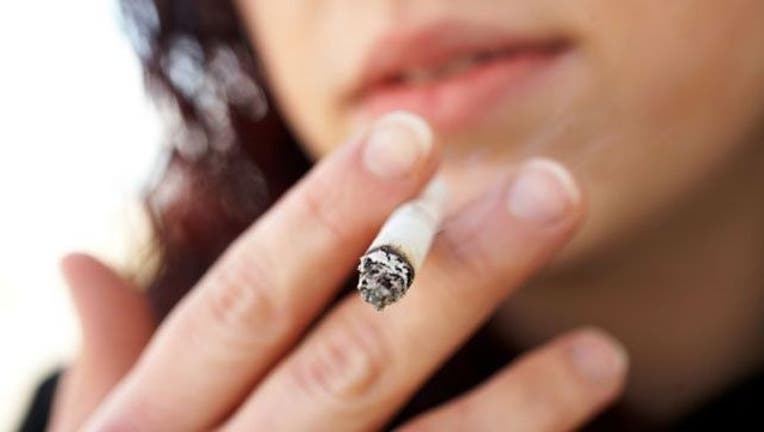Should Illinois' smoking age be raised to 21?

CHICAGO (Associated Press) - Legislation has been introduced in the Illinois Senate to raise the age to purchase tobacco products in the state from 18 to 21.
Democratic state Sen. John Mulroe of Chicago hopes the bill he's sponsoring will decrease the number of young people who start smoking and eventually help the state save money on treatment for smoking-related illnesses.
"In addition to the costs of the individual, (smoking) costs our state, privately and publicly, over $5 billion annually to treat smoking-related illnesses," Mulroe said. "Specifically to the state, $2 billion in Medicaid is spent annually on illnesses related to smoking, and obviously we could use those dollars for other services that aren't getting supported right now."
If the bill is passed, Mulroe anticipates an immediate reduction in tobacco use among minors, because he believes a 21-year-old is less likely than an 18-year-old to interact with high school students.
A study conducted last year by the Institute of Medicine estimated that raising the age to 21 would lead to a 25 percent reduction in smoking among 15- to 17-year-olds and a 15 percent reduction among 18- to 20-year-olds.
But other research suggests that restricting minors' access to cigarettes may have little to no effect, The State Journal-Register (http://bit.ly/1RfnlWH ) reported.
Shortly after a group of Massachusetts communities implemented an enforcement campaign against underage tobacco sales in 1997, the Food and Drug Administration established 18 as the national minimum age to purchase tobacco. A two-year case study showed that teen smoking prevalence and accessibility in the affected communities didn't change despite the law.
Illinois Retail Merchants Association spokeswoman Tanya Triche argues that those who are affected by smoking restrictions or cigarette taxes will continue to find ways to get tobacco products.
"Specifically in Chicago, we've seen a major increase in the past few years of the illegal sale of cigarettes, including loose ones on the street or rogue retailers, and we believe the numbers are a direct result of increased taxes," Triche said. "The demand for the product is still there, so people just find different ways such as going across the border to Indiana."
She also notes that raising the age statewide could hurt small businesses.
However, Mulroe isn't concerned about any significant loss in state revenue, because he thinks it would be made up for in Medicaid savings.
"I'm hoping for ... significant long-term savings, which will be worth it even if there is a loss in revenue," he said.
At least 131 cities in nine states, including Chicago, have passed legislation to raise the smoking age to 21, according to Preventing Tobacco Addiction Foundation.
The bill is assigned to Senate's Public Health Committee.

